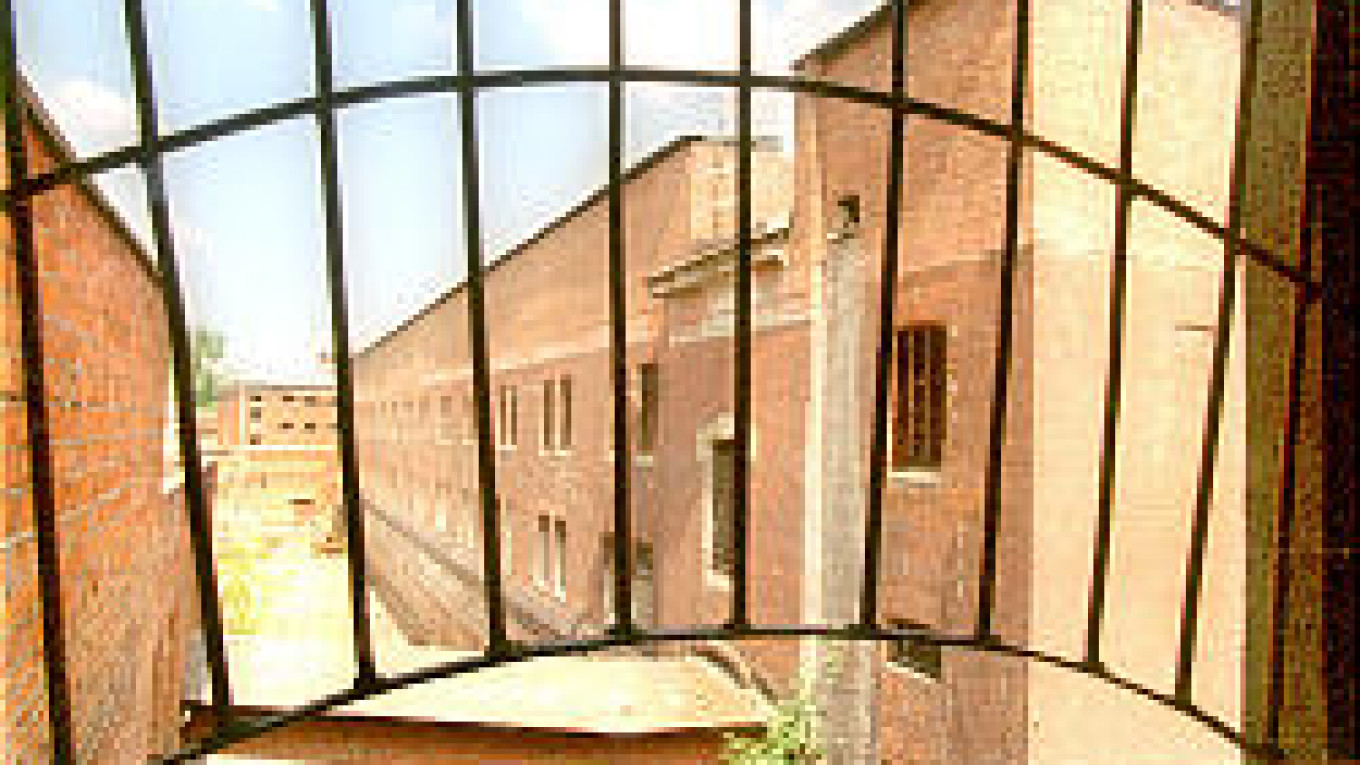Now, the 73-year-old pensioner and most of her neighbors would give anything to move elsewhere -- away from the overcrowded, high-security Butyrka jail whose decrepit wall towers over their leafy courtyard.
"Central Moscow is not a place for a jail," said Borozdina, a retired police captain. "Nothing serious has happened yet, but living next to a prison is dangerous and very unpleasant."
"Nothing serious" is an understatement: Earlier this month the 18th-century jail, the oldest in Moscow, made headlines when three inmates sentenced to life for murder and assault tunneled through the rotting floor of their cell and escaped through Butyrka's maze of underground tunnels.
But many of the residents living in the eight-story building at the corner of Lesnaya and Novoslobodskaya Ulitsas regard dangerous fugitives as the least of their problems. They have found a greater nuisance to be the crowds of relatives and friends who come from the provinces to bring food, clothing and letters to the inmates.
"I have lived here for decades and do not think it is dangerous, but these people use our courtyard and entrances as a place to sleep at night -- and as a toilet, of course," said Sergei, a middle-aged resident who declined to give his last name.
Sitting in her courtyard, where the stench of sour cabbage soup wafted over the jail's 6-meter wall of blackened brick and barbed wire, Borozdina said the worst aspect of living next to Butyrka was the way inmates' friends would yell up to them from this very yard.
Complaints from nearby residents have been so numerous and the living conditions inside the jail so lamentable that a group of State Duma deputies has proposed closing the facility and turning it into a museum.
"Butyrka is totally unacceptable for use as a pre-trial detention center. It is the ulcer of Moscow," Vladimir Semyonov, a member of the Union of Right Forces faction, said by telephone.
Semyonov, who called the prison a "Soviet Bastille," said he plans to start gathering signatures of Muscovites who want the jail closed, send the petition to President Vladimir Putin and raise the issue in the Duma later this month.
Semyonov said his faction receives a large number of letters from angry residents asking for something to be done about the jail.
"It has never been an attractive neighborhood, but now people are literally scared to live there," he said.
Officials at the Justice Ministry's prisons directorate said they needed at least 10 days to issue a comment on Semyonov's proposal and on the overall state of the jail. But a spokesman for the city's prisons directorate hinted that Butyrka -- the diminutive for Butyrskaya Prison, officially called Pre-Trial Detention Center No. 2 -- is on its last legs.
"It's 230 years old and it shows signs of it, especially bearing in mind that it has never been fully renovated," spokesman Igor Barinov said.
After the Sept. 5 escape, a prison official said the detention facility is in such a state that a man can "dig a tunnel in its concrete floors with his finger. All that's needed is time."
Prison officials said Tuesday that a month prior to their escape the three convicts had gotten into the jail's underground passageways and broken into storage rooms containing camouflage guard uniforms and food, which they took when they fled, Interfax reported. Law-enforcement authorities said they were searching for the fugitives in Kazakhstan and Moldova as well as in Kemerovo and other cities in Russia.
Of six pre-trial detention centers in Moscow, housing a combined total of some 14,000 inmates, Butyrka has the worst conditions. Prisoners are allotted about 80 square centimeters of floor space each and sleep in shifts.
Semyonov, a Duma deputy, said Butyrka inmates could be relocated to a new facility under construction in northern Moscow, designed to accommodate up to 10,000 inmates in normal conditions with 4 square meters per person.
But Barinov said that, by year's end, only one cell block of the new complex will be ready, and it will be able to accommodate only 500 prisoners. The cells are now temporarily occupied by prison staffers, most of whom come from the provinces, since low-paying jail jobs are unpopular among Muscovites.
"You cannot simply close a prison where over 4,000 inmates are held," Barinov said in frustration. "Where are we to put them?"
A Message from The Moscow Times:
Dear readers,
We are facing unprecedented challenges. Russia's Prosecutor General's Office has designated The Moscow Times as an "undesirable" organization, criminalizing our work and putting our staff at risk of prosecution. This follows our earlier unjust labeling as a "foreign agent."
These actions are direct attempts to silence independent journalism in Russia. The authorities claim our work "discredits the decisions of the Russian leadership." We see things differently: we strive to provide accurate, unbiased reporting on Russia.
We, the journalists of The Moscow Times, refuse to be silenced. But to continue our work, we need your help.
Your support, no matter how small, makes a world of difference. If you can, please support us monthly starting from just $2. It's quick to set up, and every contribution makes a significant impact.
By supporting The Moscow Times, you're defending open, independent journalism in the face of repression. Thank you for standing with us.
Remind me later.


